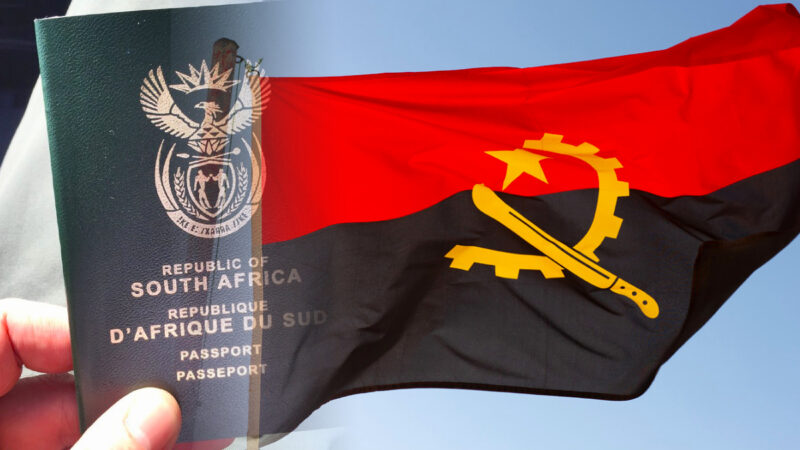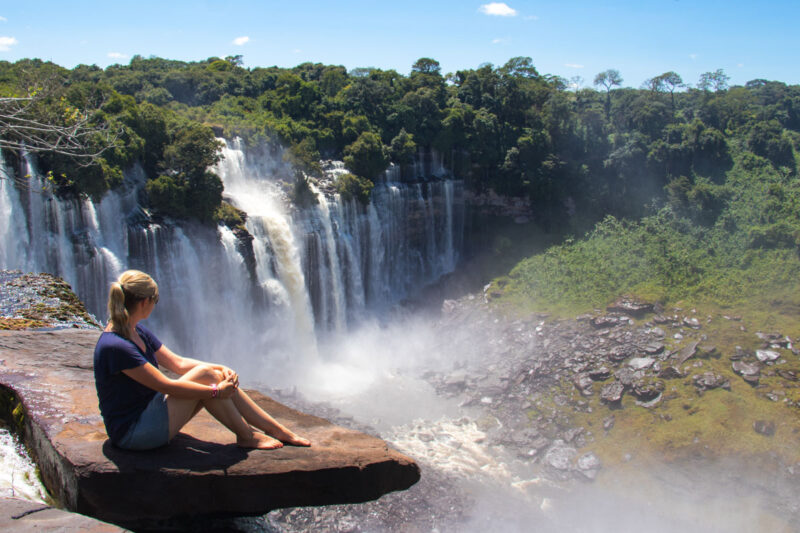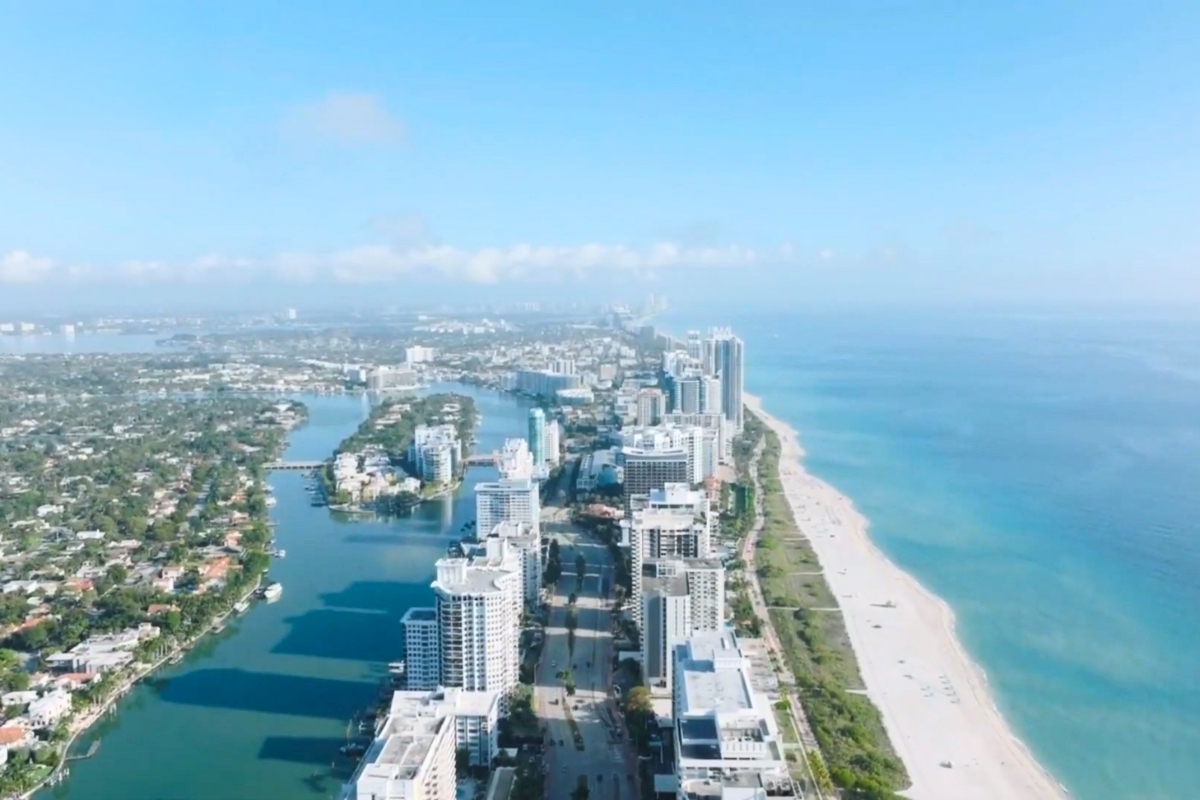Did you know that Angola has the highest homicide rate in the world, with a staggering 38.2 murders per 100,000 people? This startling statistic underscores the importance of the U.S. State Department’s Travel Advisory for American citizens visiting this African nation.
As a seasoned traveler, I understand the allure of exploring new destinations, but Angola poses unique challenges that require careful consideration. The advisory warns of increased caution due to the high crime rates, including violent incidents such as armed robbery, assault, carjacking, and homicide. Unfortunately, the local police have limited resources to effectively respond to these serious criminal threats.
Beyond the safety concerns, the advisory also highlights the inadequacies of Angola’s healthcare system. Health facilities in the country are under-resourced, with a shortage of basic vaccines and medications, particularly outside the major cities. Travelers must be prepared to take precautions, review the CDC’s guidance, and potentially seek medical evacuation in the event of a serious illness or injury.
Key Takeaways
- The U.S. State Department has issued a Travel Advisory for Angola, warning of high crime rates and limited law enforcement capabilities.
- Violent incidents, such as armed robbery, assault, carjacking, and homicide, are common, and travelers should exercise increased caution.
- Angola’s healthcare system is under-resourced, with limited availability of basic vaccines and medications, especially outside major cities.
- Travelers are advised to review the CDC’s Travelers’ Health information, avoid physical resistance during robberies, and enroll in the Smart Traveler Enrollment Program (STEP).
- Special considerations for LGBTQI+, disabled, and women travelers are highlighted in the advisory.
Overview of Travel Advisory for Angola

The U.S. State Department has issued a Level 2 Travel Advisory for Angola, advising American citizens to “Exercise Increased Caution” when visiting the country. The advisory highlights several key risks and concerns that travelers should be aware of, including the high rates of violent crime, such as armed robbery, assault, carjacking, and homicide, that continue to plague Angola.
Level of Caution
The Level 2 Travel Advisory for Angola means that travelers should exercise a heightened level of awareness and take appropriate precautions when exploring the country. This advisory level is a step below the most severe Level 4, which calls for Americans to avoid all travel to a particular destination.
Key Risks and Concerns
In addition to the high crime rates, the advisory also notes that the local police in Angola lack the necessary resources and capabilities to effectively respond to serious criminal incidents. This poses a significant challenge for travelers, who may find themselves vulnerable to attacks with limited law enforcement support.
Another major concern highlighted in the advisory is the state of Angola’s healthcare system, which is severely under-resourced. Travelers may have difficulty accessing basic vaccines and medications, especially outside of the capital city of Luanda. This underscores the importance of travelers ensuring they are up-to-date on all recommended vaccinations and packing any necessary medications before their trip.
To mitigate these risks, the U.S. State Department advises Angola-bound travelers to take several precautions, such as avoiding physical resistance during robberies, using caution when walking or driving at night, keeping a low profile, and preparing comprehensive emergency contingency plans.
Safety and Security Situation in Angola
The U.S. State Department’s Travel Advisory for Angola highlights the concerning safety and security landscape in the country. Travelers must be aware of the high rates of violent crime, including armed robbery, assault, carjacking, and homicide, which pose a significant threat to their wellbeing.
Crime Rates and Risks
According to the advisory, Angola experiences alarmingly high levels of violent crime, with armed robbery, assault, and carjacking being particularly prevalent. Travelers are cautioned to exercise extreme caution, as the local police lack the necessary resources and capabilities to effectively respond to and deter serious criminal incidents. The advisory urges visitors to remain vigilant, avoid displaying wealth or valuables, and report any incidents to the U.S. Embassy or local authorities immediately.
Areas to Avoid
The Travel Advisory specifically identifies certain areas, particularly within the capital city of Luanda, as higher-risk zones where travelers should exercise increased vigilance. These neighborhoods are known to have elevated crime rates, and visitors are advised to avoid them whenever possible or traverse them with extreme care.
Law Enforcement Capabilities

The advisory also notes that law enforcement in Angola generally lacks the necessary resources, training, and capabilities to provide an adequate level of protection and security for visitors. The limited capacities of the local police force mean that they may be unable to effectively respond to or deter serious criminal incidents involving tourists. Travelers are encouraged to remain aware of their surroundings and report any issues or concerns to the appropriate authorities.
Angola Travel Advisory
The U.S. State Department’s Travel Advisory for Angola reiterates the need for increased caution due to the high levels of violent crime and the limited capabilities of the local law enforcement. Travelers are advised to review the Angola Travel Advisory carefully and take appropriate precautions, such as avoiding physical resistance during robberies, using caution when walking or driving at night, keeping a low profile, and enrolling in the Smart Traveler Enrollment
Program (STEP) to receive alerts and make it easier to locate them in an emergency. The advisory also provides information on other important considerations, such as health risks, Angola visa requirements, Angola currency guide, and special considerations for certain traveler groups.
Travelers to Angola should be aware of the country’s high crime rates, including incidents of armed robbery, assault, carjacking, and homicide. The local police have limited resources to effectively respond to serious criminal incidents, so it is crucial for visitors to exercise vigilance and follow the advisory’s recommendations. Enrolling in STEP can help ensure that travelers receive timely updates and assistance in case of an emergency.
In addition to personal safety concerns, the Angola Travel Advisory also highlights the challenges posed by the country’s under-resourced healthcare system. Travelers are advised to review the CDC’s Travelers’ Health information for Angola and ensure they are up-to-date on all recommended vaccinations before visiting the country. They should also be prepared to seek medical care within the limited capabilities of the Angolan healthcare system or consider medical evacuation in the event of a serious illness or injury.
Specific considerations for different traveler groups, such as LGBTQI+ individuals, travelers with disabilities, and women, are also addressed in the advisory. By being informed and prepared, American travelers can navigate Angola safely and have a positive experience.
Health and Medical Facilities in Angola

The U.S. State Department’s Angola Travel Advisory sheds light on the significant challenges faced by the country’s healthcare system. Health facilities in Angola are often under-resourced and lack adequate supplies of basic vaccines and medications, particularly outside the major cities.
Healthcare System Capabilities
Travelers to Angola should be aware that the country’s healthcare system is limited in its capabilities. Many health facilities, especially those located outside of Luanda, the capital city, may not have the necessary equipment, medications, or trained staff to provide comprehensive medical care. This can be particularly concerning for those requiring specialized treatments or facing serious illnesses or injuries.
Recommended Vaccinations and Medications
The U.S. State Department’s Angola Travel Advisory strongly recommends that travelers review the CDC’s Travelers’ Health information for Angola and ensure they are up-to-date on all recommended vaccinations before visiting the country. Travelers should also be prepared to travel with any required medications, as the availability of many common drugs may be inconsistent or limited within the Angolan healthcare system.
In the event of a serious medical emergency, travelers may need to consider seeking medical evacuation to a better-equipped facility outside of Angola. Comprehensive travel insurance that covers medical and evacuation expenses is highly advisable for those planning to visit Angola.
Entry Requirements and Documentation

When visiting Angola, American citizens must be aware of the country’s specific entry requirements and documentation guidelines. The U.S. State Department’s Travel Advisory for Angola provides valuable insights into these important considerations.
Visa and Passport Information
Travelers to Angola are required to obtain a valid visa before arrival. Passports must also be in good condition and have at least six months of validity remaining. Adhering to these entry requirements is crucial, as the Angolan government strictly enforces visa and passport regulations.
Currency Regulations
Angola has strict currency guidelines that visitors must follow. Both residents and non-residents are required to declare any combined currency amounts exceeding the equivalent of $10,000 upon arrival. Additionally, travelers may not export more money than they brought into the country. Careful attention to the Angolan currency regulations is essential, as the destruction of kwanza notes is considered illegal.
Special Considerations for Travelers

The U.S. State Department’s Angola Travel Advisory highlights several important factors for different traveler groups visiting the country. While Angola does not have legal restrictions on LGBTQI+ conduct or identity, societal biases and discrimination can sometimes lead to harassment, violence, and abuse against this community. Travelers in the LGBTQI+ group are advised to exercise caution and remain vigilant, especially when meeting someone through a dating app.
Travelers with Disabilities
Travelers with disabilities may face limited accessibility to transportation, public buildings, hotels, and communication accommodations, particularly outside the capital city of Luanda. The advisory emphasizes the need for these travelers to research and plan accordingly to ensure a smooth and comfortable trip to Angola.
Women Travelers
The U.S. State Department’s advisory for Angola notes that statistics on prosecutions for violence against women are not readily available, and most rape cases often go unprosecuted. However, the country does have domestic violence counseling centers, shelters, and free legal assistance available to support abused women travelers.
Conclusion
The U.S. State Department’s Travel Advisory for Angola advises American citizens to exercise increased caution when visiting the country due to the high rates of violent crime and the limited capabilities of the local law enforcement. Travelers should take appropriate precautions, such as avoiding physical resistance during robberies, using caution when walking or driving at night, keeping a low profile, and enrolling in the Smart Traveler Enrollment Program (STEP).
Also read: Marocco travel advisory
Additionally, travelers should be aware of the challenges posed by Angola’s under-resourced healthcare system and follow the recommended guidelines for entry requirements and documentation. Special considerations for certain traveler groups, such as LGBTQI+ individuals, travelers with disabilities, and women, are also highlighted in the advisory.
By being informed and prepared, American travelers can navigate Angola safely and have a positive experience. The Angola Travel Advisory provides valuable information to ensure a safe and successful trip, covering key aspects such as travel safety, Luanda travel tips, Angola tourist attractions, visa requirements, currency regulations, health advisories, travel alerts, embassy contacts, and travel insurance.
FAQ
What is the current U.S. State Department Travel Advisory for Angola?

The U.S. State Department has issued a Level 2 Travel Advisory for Angola, which means travelers should “Exercise Increased Caution” when visiting the country.
What are the key risks and concerns identified in the Angola Travel Advisory?
The advisory highlights high rates of violent crime, such as armed robbery, assault, carjacking, and homicide, as well as the limited resources and capabilities of the local police to effectively respond to serious criminal incidents.
What precautions are travelers advised to take in Angola?
Travelers are advised to avoid physical resistance during robberies, use caution when walking or driving at night, keep a low profile, and enroll in the Smart Traveler Enrollment Program (STEP) to receive alerts and make it easier to locate them in an emergency.
What are the healthcare challenges in Angola?
The advisory notes that Angola’s healthcare system is under-resourced, with limited availability of basic vaccines and medications, particularly outside of major cities. Travelers are advised to review the CDC’s Travelers’ Health information and be prepared to seek medical care within the limited capabilities of the Angolan healthcare system.

